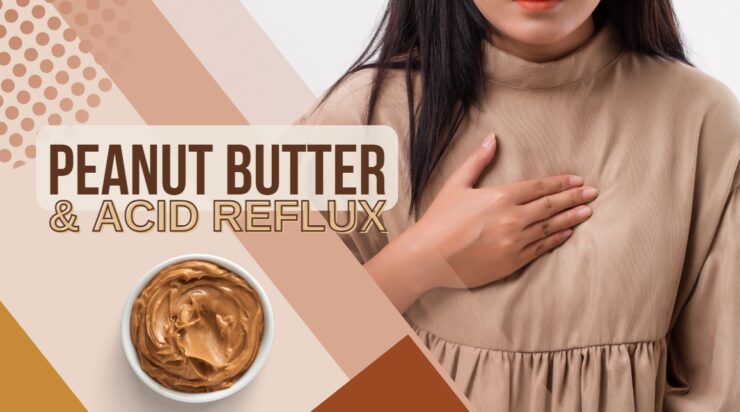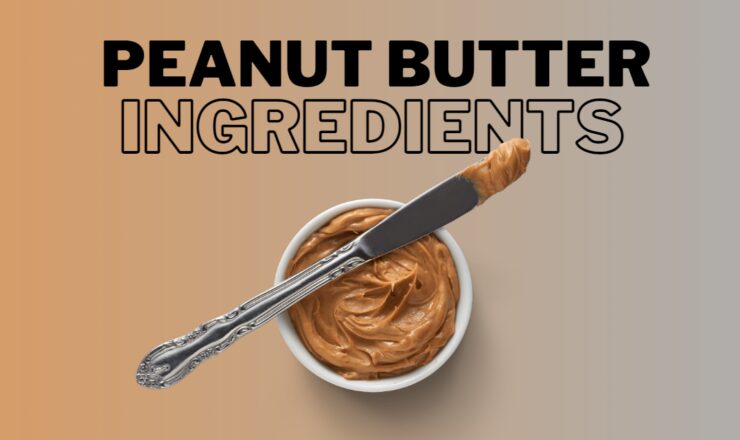Being rich in amino acids, vitamins, and healthy fats and being an overall delicious meal, peanut butter offers a wide variety of benefits to your organism. However, many people that struggle with acid reflux often wonder – is peanut butter acidic? Read on if you want to find out more about this subject.
Peanuts are rich in nutrients and very delicious in various forms, including peanut butter. However, many people complain about getting bad acid reflux after eating it. This is due to the fact that peanut butter is indeed acidic. But how much and how safe is it to consume it daily? We did some digging and found some answers considering these questions. We have a lot to cover, so let us start without any delay.
Contents
Peanut Butter vs. Other Acidic Foods
Although peanut butter is an acidic type of food, when compared with other types of foods, such as orange juice, vinegar, or lemon juice, it is less acidic. On a pH scale, 7 is generally considered acidic. For example, orange juice stands at 4.2 on this scale, and it is more than peanut butter. Nevertheless, despite it being less acidic, peanut butter is still bad for acid reflux, especially when consumed in large amounts.
How Dangerous Are Peanut Butter Ingredients for Acid Reflux?
Even though peanut butter lies in the near-neutral range on the pH scale and should not affect acid reflux from a pH point of view, it does contain some other ingredients that can trigger it.
The ingredients in peanut butter have the potential to be inflammatory, as they contain a high amount of unsaturated fats and additives that can cause major acid reflux. The main ingredients of this butter are roasted peanuts, sugar, and vegetable oil.
These ingredients are high in unsaturated fats, omega-3 fatty acids, and minerals. It is also important to mention that peanut butter also contains omega-6, manganese, proteins, and loads of fiber, so if you do not have issues with acid reflux, you can enjoy the benefits that come with these ingredients.
Should I Avoid Peanut Butter if I Suffer From GERD?
People who have issues with GERD can consume peanut butter as long as they do not have any allergies to it. However, if you experience reflux symptoms after taking it, you should avoid it. This is because some researchers have discovered that symptoms of acid reflux triggered in certain foods can be due to the interaction between allergic substances and the esophagus.
Can Peanut Butter Give You Heartburn?
To put it simply, yes, it can. In case you ever experienced pain around your chest after eating too much peanut butter, it is due to its acidity. Aside from the fact that peanut butter can give you acid reflux, especially when you consume it on an empty stomach, excessive acid in your gut can give you symptoms of heartburn.
Are There Any Types of Peanut Butter That Are Less Acidic?
It is possible to find peanut butter that is less acidic, but it is typically a lot of hassle to explore numerous brands in today’s market. However, if you do opt for this research, look for all-organic peanut butter.
These kinds of butter contain no sugar, extra fats, or oil, and they should only contain peanuts as the main ingredient. You can also opt for vegan nut butter or look for less granular peanut butter. It is also worth mentioning that chunky peanut butter is more acidic than creamy one, so keep an eye out for these.
What Are the Benefits of Peanut Butter?
Now that we have concluded that peanut butter is acidic and that people with acid reflux should avoid it, let us talk about some of the positives that come with this food. For starters, it is rich in unsaturated fats that are actually considered “healthy” fats, and they help you in lowering your cholesterol levels. Long-term, this is great as it can help you reduce the risk of heart disease.
This butter is also a great source of vitamins and minerals. For example, it contains the essential mineral manganese. It is a mineral that helps activate enzymes that are designed to remove toxins from your body and break down nutrients for your body to absorb while helping tissue growth.
Moreover, peanut butter is rich in fiber and protein. Fiber promotes digestive health, while protein assists in helping build and repair muscles.
Bottom Line
In general, opinions are divided and mixed on whether peanut butter can have a negative impact on acid reflux. In case you want to implement it in your diet, you should slowly incorporate it into your meal plan and stick to small amounts to test how it affects you.

Steve is a certified trainer with more than 10 years of training experience and he holds a Master’s in Sports Science. Prior to Boston Rock Gym, Steve worked for two years as a personal trainer.




